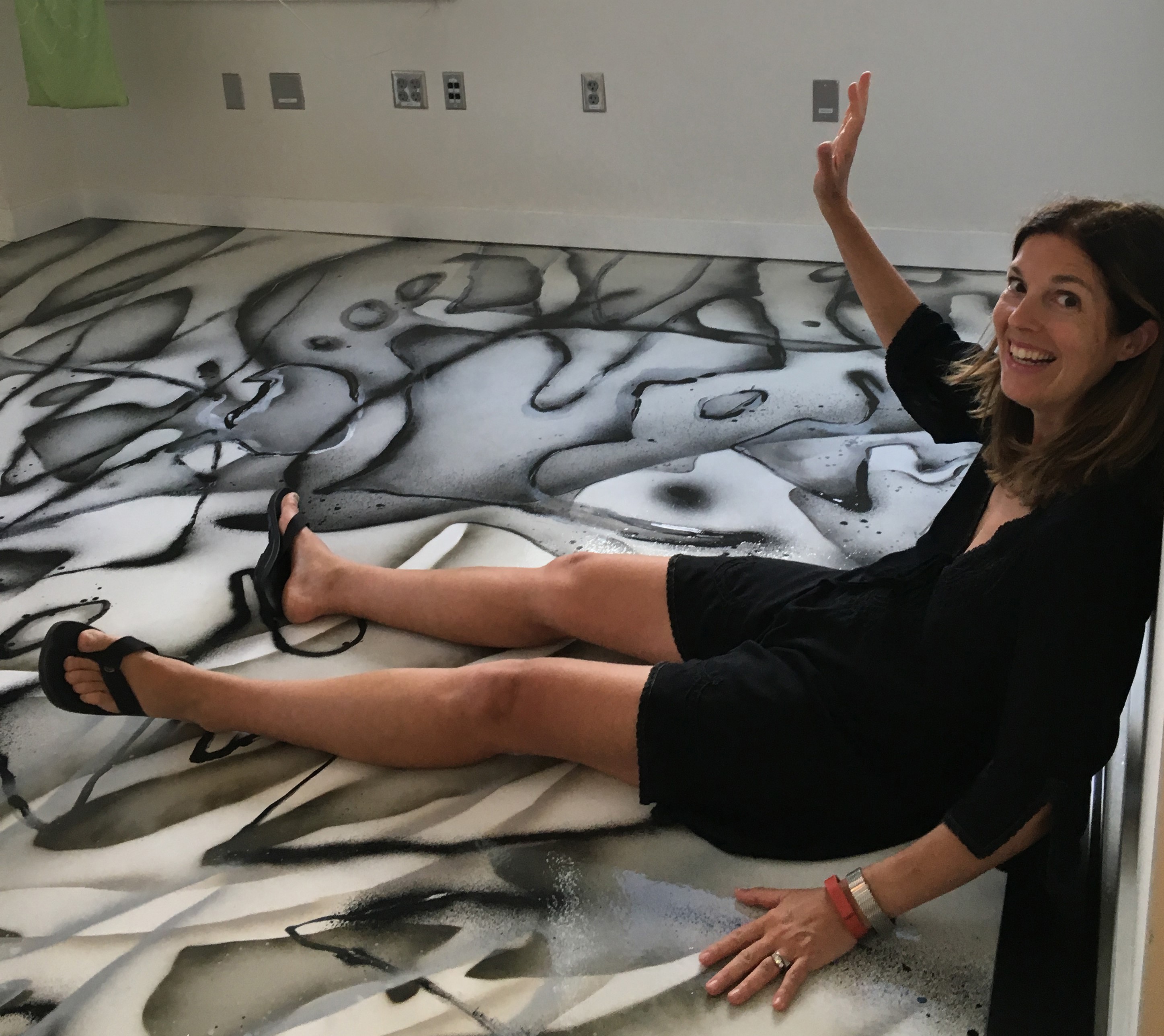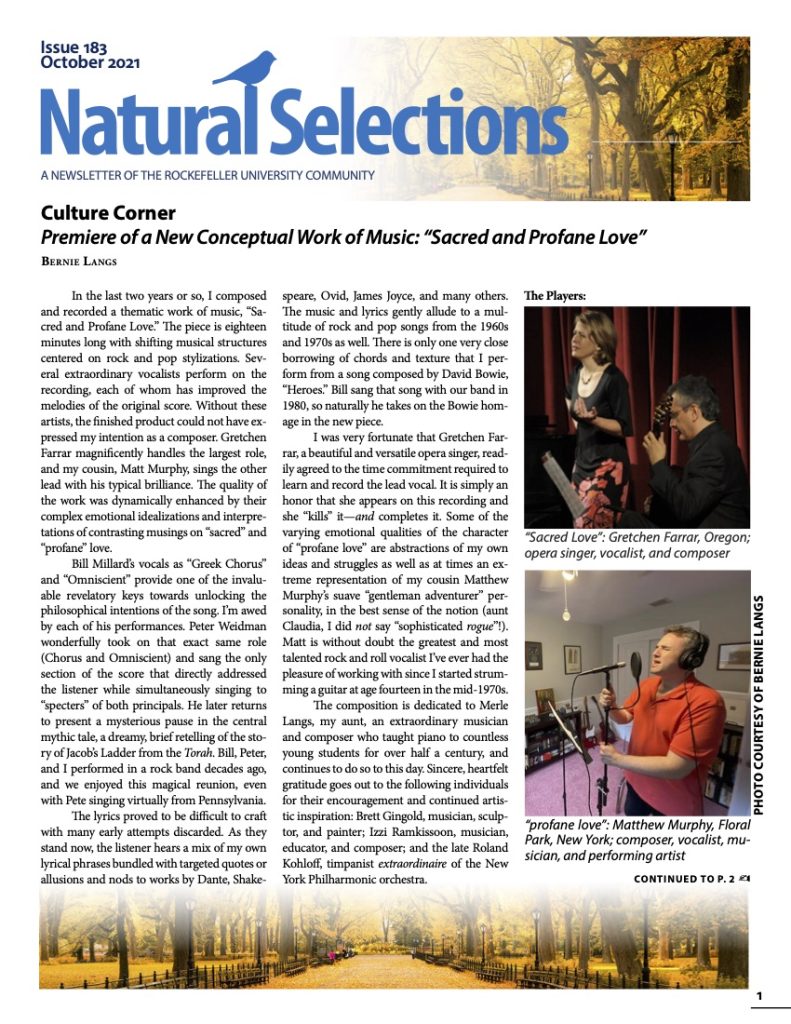Fernando Bejarano

Last year, gender inequality in science hit the headlines of numerous major scientific journals. Several remarks from notable scientists about their thoughts on women working in science brought up again the dearth of women in STEM (science, technology, engineering and math) fields to the public consciousness. According to the US Bureau of Labor Statistics, nowadays women make up almost half of the total US workforce and half of the college-educated workforce. However, women are much less represented in STEM fields, holding less than a quarter of the STEM jobs.
It is known that women hold a low share of undergraduate STEM degrees. It is curious that women with STEM degrees are less likely than their male counterparts to become STEM professionals. On the other hand, women with STEM majors are twice as prone as men to work in healthcare or education. One imagines that there are many factors contribute to this disparity of men and women in STEM fields, such as gender stereotyping, lack of female role models, less family-friendly flexibility, motherhood or even gender biased hiring.
There is considerable research demonstrating gender biased hiring practice in a variety of fields, but do these practices also plague the science field? A study published by Moss-Racusin et al. in PNAS (2012), tells us that these types of practices not only occur in science but they are more common than we imagine, happening frequently in a field where its members have been rigorously trained to be objective. You may be surprised to know that if your name is Jennifer your chances of working in science, technology, engineering or math are considerably lower than if your name is John. It won’t make much difference if your name is Mary, Lisa or Amy. There is a disparity when you compare yourself with other male opponents such as Charles, James or Brian. You will also make less money for the same job, and if you ever get a tenure track position in an elite institution you will be surrounded by many male colleagues. Such is the worrisome situation of women in science presented by this study.
However, looking at the career of our guest, you could think that things would be different if your name was Leslie Vosshall. Success seems to follow her around. She managed to thrive in a challenging environment, while achieving a meteoric rise to excellence in science. Her career could be considered as a perfect illustration of gender equality pursuit in biosciences. Born and raised in New York City, Vosshall received her B.A. in biochemistry from Columbia University, and her Ph.D. in molecular genetics from The Rockefeller University (RU). After graduate school she returned to Columbia University for her postdoc under the mentorship of Nobel Laureate Richard Axel. Leslie Vosshall has made important discoveries in the field of olfaction since her early days in as a neuroscientist. She started by decoding the olfactory sensory map of the very cute fly Drosophila melanogaster. Her scientific discoveries continue to unveil the mysteries of the brain, covering a variety of models from insect to human. After a successful postdoc, she came back to RU as an assistant professor, where she currently holds the position of Head of the Laboratory of Neurogenetics and Behavior. She spent years having fun with pheromone perception, odorant receptors, chemotaxis behavior, odor memories, and building a molecular architecture of smell in flies, mosquitoes and vertebrates. In another era, she could have been the most prosperous perfume chemist in all of Europe. Let’s say that with her proficiency, she would have blown away the sense of smell of Louis XIV! With the Sun King in her favor, I imagine her as one of the most influential people in the eighteenth century Versailles Court.
Once again, knowledge is power and whether in the eighteenth or the twenty-first century, it is no doubt that she is an outstanding female role. As a sign of quality, we can observe a consistency in her publications in top peer-reviewed journals. She also manages to share time with her family, including two children. During her career she has been the recipient of many awards and honors: the Prize for Innovative Research in Neuroscience by Duke University, the New York City Mayor’s Award for Excellence in Science and Technology and the Presidential Early Career Award for Scientists and Engineers (PECASE) among others. In 2015 she was elected to the National Academy of Sciences, quite an outstanding achievement reserved only for top leading researchers, and where every year only a few women are picked to be part of this select group of scientists.
I am certain that her career path was not easy; that it was hell until she got here; but also despite the draining effort, she enjoyed it all along. I assure you that she would not switch places with any male coworker, or have chosen a non-STEM career. Leslie Vosshall would do it all over again for gender equality in science, for a more family-friendly environment in STEM careers and for the future generations of women participating in life sciences.
This is what Leslie told us:
- NS: Who, or what, inspired you to enter your field of achievement?
LV: My late uncle Philip Dunham—a physiology professor at Syracuse University who gave me my first big break in science when I was 16. I started spending summers at the Marine Biological Laboratory in Woods Hole, MA and worked in his lab up there. In the beginning I washed glassware, ordered chemicals from Sigma, and picked up packages and mail. A few weeks in, I started doing experiments. My first paper was published when I was 17, which seems crazy in retrospect. But it’s not a great paper either to be honest.
- NS: Explain what you do to a 5 year old kid.
We study mosquitoes! These insects hunt us, bite us, drink our blood, and leave behind an itchy bite. In many places in the world, the mosquito bite can make people sick because mosquitoes can pass diseases along when they bite us. These diseases—malaria, yellow fever, dengue, chikungunya, and zika—cause major health problems and kill hundreds of thousands of people every year. My lab is working to understand everything about these mosquitoes: how they find humans, why they like humans more than non-human animals, why some humans are more attractive than others, and why and how exactly they find us. We know that mosquitoes like human scent, the heat that our warm bodies give off, the carbon dioxide in our breath, and what we look like. We test the behavior of these animals, and make mutant mosquitoes that are missing one or more of the five senses to figure out what’s important for a mosquito as it flies around looking for people to bite. The work is important because it tells us basic things about how animals use their senses to navigate the world. It has medical relevance because understanding the behavior of this most dangerous animal in the world may help us come up with ideas to stop them from biting us.
- NS: If you could have to sum up the most important characteristics of a scientist in three words, what would they be?
LV: Creative, Relentless, Resilient
- NS: How do you feel about the position women have in science? Female scientist versus male scientist.
LV: This is complicated. Opportunities for women in science get better every decade, but it’s still an issue of great concern that we remain seriously underrepresented at the faculty level. Women are now getting PhDs in equal numbers to men, but participation in the enterprise drops off drastically between the postdoc and the first tenure-track position. I think this comes down to a few issues, many of which can be addressed with simple interventions. There is still explicit sexism out there, but more insidious is the quiet implicit bias that makes people expect less from women than men. This has the effect of reducing the self-confidence of women, and makes us less likely to keep going, which in turn makes us look like less compelling colleagues. I see this all the time in job applications, because for candidates of equivalent achievement, letters of recommendation for women (from male OR female references) are measurably weaker and full of comments about helpfulness, baking cakes for lab parties, productivity in spite of having babies, etc. etc. The academic tenure-track career is viewed as a risky and stressful option, and unfortunately many great female scientists opt out as a result. The truth is that there is no more flexible and joyful job in the world than to run your own lab. I have been doing retail politics to encourage women to stay in science, with some notable recent successes of female scientists who thought about opting out but who are now tenure-track faculty!
- NS: Scientists don’t only focus on science. They are usually passionate people devoted to other extracurricular activities. Do you have any other passions besides science?
LV: I like art, fashion, and food, and spend about equal amounts of time and money on all three. I collect contemporary paintings, mostly figurative. Recently I commissioned coco144, our local graffiti artist celebrity and RU electrician, to do a large-scale work on my lab office floor. In NYC and when I travel for business or pleasure, I go to galleries and museums, but also consignment shops hunting for great designer loot, and I check out as many great restaurants as possible.
- NS: What would you be if you weren’t a scientist?
LV: Dead.
- NS: Did you have any “big rejections” in your life?
Lots of the usual rejections in science—papers rejected, rejected from faculty positions when I applied as a postdoc, prizes not won, etc. etc.—but rejection and failure in science are good. Any working scientist needs to develop an appetite for rejection, and use the frustration and anger caused by failure to keep trying again and again. That said, I still have not gotten over the humiliation of not making the cheerleading team in my junior high school.
- NS: Who, of all the historic or current personalities, would you most want to meet and why?
LV: Rita Levi-Montalcini,a legendary biologist with an incredible life story that always inspires me. Whenever I think things are frustrating or hopeless, I think of Rita losing her academic position due to Nazi racial laws, but continuing to do experiments in her bedroom at home and again when the family fled from the Nazis. She kept going.
- NS: What’s your idea of a perfect holiday/vacation?
LV: I was born in Switzerland and return frequently to the alpine valley where I spent time as a child. It is beautiful there, sparsely populated, quiet, with great hiking and of course cows, cheese, and chocolate. What could be more perfect?
- NS: Do you have any advice for young researchers?
LV: The recipe for a successful and happy life as a scientist: pick problems that excite you, and find interesting ways to solve them. Expect to fail often on the road to success—the easy problems are rarely interesting. Be resilient and don’t give up, especially if you are a woman. Women receive less encouragement and people expect less from us, but that should make you 100 times more motivated to prove them wrong. Listen to constructive criticism, but ignore those who would dissuade you from pursuing interesting and risky questions. Encourage other scientists around you and be an ethical colleague. Support open science: talk about your work, share your ideas and data, and consider publishing on a pre-print server such as bioRxiv! Don’t forget to have a life outside the lab, be it a family, a hobby, a vacation, a passion that is separate from your life in science.

